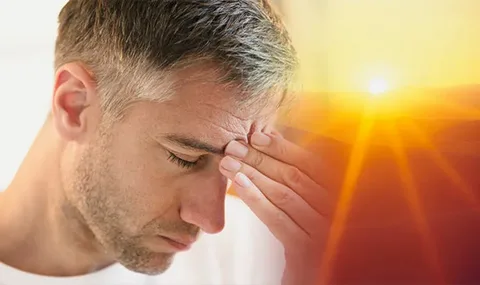We’ve all heard that staying hydrated is essential for good health—but most people don’t realize just how bizarre and unexpected the effects of dehydration can be. From brain fog to muscle cramps and even bad breath, dehydration doesn’t just make you thirsty; it can trigger a cascade of strange and confusing symptoms.
In this article, we’ll explore how dehydration affects the body, the science behind these unusual symptoms, and how you can recognize and prevent them before they escalate into serious health concerns.
What Is Dehydration?
Dehydration occurs when your body loses more fluids than it takes in. Water is essential for nearly every function in the body, from regulating temperature and maintaining blood pressure to enabling digestion and nutrient absorption. Even mild dehydration can disrupt normal body processes.
Common causes of dehydration include:
- Not drinking enough water
- Excessive sweating (e.g., from exercise or heat)
- Diarrhea or vomiting
- Certain medications (e.g., diuretics)
- Illness or fever
1. Brain Fog and Poor Concentration
One of the first and most noticeable effects of dehydration is mental sluggishness. The brain is made up of about 75% water, and when you’re dehydrated, it literally shrinks in volume, reducing its ability to function efficiently.
Why it happens: Dehydration reduces blood flow and oxygen to the brain. This affects short-term memory, focus, and mental clarity. Even just 1–2% fluid loss can lead to noticeable cognitive decline.
How it feels: Difficulty concentrating, poor decision-making, forgetfulness, or a general sense of confusion.
2. Headaches and Left-Side Head Pain
Headaches are a classic dehydration symptom, but they can be oddly localized—sometimes felt only on one side of the head.
Why it happens: Fluid loss causes blood vessels in the brain to constrict, which can lead to localized pain. It can also result in reduced cerebrospinal fluid, leading to increased pressure on the brain.
Weird symptom alert: Some people report only left- or right-side headaches, mimicking migraines or tension headaches—making dehydration an easy-to-miss cause.
3. Bad Breath (Halitosis)
Drinking less water than your body needs doesn’t just dry your throat—it also dries out your mouth, reducing saliva production, which plays a key role in controlling bacteria.
Why it happens: Less saliva allows odor-causing bacteria to thrive, leading to persistent bad breath even with brushing and flossing.
Tip: If your breath smells off despite good oral hygiene, consider drinking more water before reaching for mouthwash.
4. Muscle Cramps and Twitching
If you’ve ever had a sudden leg or calf cramp, dehydration could be the reason—especially if you’re sweating or exercising in the heat.
Why it happens: Dehydration alters the balance of electrolytes such as sodium, potassium, and magnesium. These minerals are critical for proper muscle function. When they’re out of balance, it can cause involuntary contractions and spasms.
Other symptoms: Eye twitching, finger spasms, or even facial tics.
5. Cold Hands and Feet
Surprisingly, dehydration can also affect your circulation, causing blood to prioritize essential organs and reduce flow to the extremities.
Why it happens: With less fluid in your bloodstream, your blood pressure may drop, and circulation slows—resulting in cold, clammy hands and feet even in warm temperatures.
When to worry: If combined with dizziness, fatigue, or fainting, this could be a sign of moderate to severe dehydration.
6. Dry Skin and Sudden Acne Flare-ups
Hydration plays a vital role in maintaining skin health. While dry skin is common in dehydrated individuals, acne or increased oil production is another unusual symptom.
Why it happens: The skin compensates for lack of moisture by producing more oil, which can clog pores and lead to breakouts.
Look out for: Dull complexion, tightness after washing, and flaky skin with oily patches.
7. Fever and Chills
Though less common, fever-like symptoms can occur during severe dehydration, especially if you’re already battling an illness.
Why it happens: Your body struggles to regulate temperature without adequate fluids, which can lead to overheating and chills—even if you’re not sick.
Important: If you’re experiencing fever, dizziness, and low urine output, seek medical attention immediately.
How Much Water Do You Really Need?
While “8 glasses a day” is a common rule, hydration needs vary based on age, climate, activity level, and diet. A better rule of thumb:
- Men: ~3.7 liters/day (including food and beverages)
- Women: ~2.7 liters/day
If you’re active, live in a hot climate, or consume caffeine or alcohol, you’ll need more to maintain balance. In fact, even mild dehydration can trigger symptoms like fatigue and headaches—and in some cases, may contribute to issues like Pain on the Left Side of the Head: Causes, Types, and More.
Tips to Stay Hydrated
- Drink a glass of water as soon as you wake up.
- Eat water-rich foods like cucumbers, watermelon, and oranges.
- Set hourly hydration reminders on your phone.
- Use an app or smart bottle to track your intake.
- Avoid overdoing it with caffeine and alcohol, both of which dehydrate.
Final Thoughts
Dehydration doesn’t always look like thirst. Sometimes, it shows up as brain fog, strange muscle twitches, or even a one-sided headache. Being aware of these unusual symptoms can help you catch dehydration early—before it causes bigger health problems.



